- Home
- About
- News
- Tax Reform
- Ethics Reform
- Budget Reform
- Reformer’s Roundtable
- Contact Us

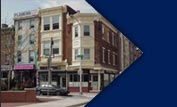


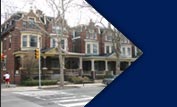
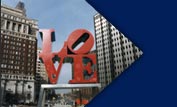
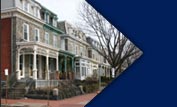
Tax Shift: Swell Gift, Short Shrift, Force Thrift?
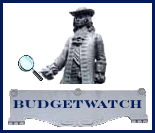 Legislation recently introduced in City Council raises some interesting questions about the way we budget. The bill would reduce city Real Estate Tax rates and increase school district tax rates, but leave overall Real Estate Tax rates at the same level for taxpayers. Currently, the city receives about 43 percent of Real Estate Tax revenues and the school district receives about 57 percent. The proposed move would change the split so that the district would receive 60 percent of revenues. This move would increase revenues by about $20 million annually for the school district and decrease revenues for the city by the same amount each year. The city made a similar shift a few years ago to increase district revenues as part of the state’s takeover of city schools. While taxpayers would see no change because the overall rate of the Real Estate Tax would remain the same, this shift in taxation raises some profound questions about how the city makes decisions about how to raise and spend money.
Legislation recently introduced in City Council raises some interesting questions about the way we budget. The bill would reduce city Real Estate Tax rates and increase school district tax rates, but leave overall Real Estate Tax rates at the same level for taxpayers. Currently, the city receives about 43 percent of Real Estate Tax revenues and the school district receives about 57 percent. The proposed move would change the split so that the district would receive 60 percent of revenues. This move would increase revenues by about $20 million annually for the school district and decrease revenues for the city by the same amount each year. The city made a similar shift a few years ago to increase district revenues as part of the state’s takeover of city schools. While taxpayers would see no change because the overall rate of the Real Estate Tax would remain the same, this shift in taxation raises some profound questions about how the city makes decisions about how to raise and spend money. One major issue raised by this change might resonate with history buffs: the question of “taxation without representation.” The city and school district are separate entities, with the city doing the taxing and the district doing the representing (or at least making the decisions about the spending). The school district is run by the School Reform Commission, which comprises three members appointed by the Governor of Pennsylvania and two members appointed by the Mayor of Philadelphia. The School Reform Commission decides how school district money is spent, but has no power to levy taxes. Taxes for the district are levied by the Mayor and City Council, but — with the exception of the input of the Mayor’s appointments to the School Reform Commission — the city’s elected officials have no authority to guide the use of the tax revenues.
Because the city’s elected officials have no control over how this additional revenue would be spent, another issue is raised by the proposed shift is the question raised by former Eagles running back Ricky Watters: “For who? For what?” Taxpayers might heartily endorse such a shift if they knew it would decrease class sizes or add music instruction in all schools. More important, most taxpayers could be even more enthusiastic about the shift if they knew the additional spending would create a positive result such as increasing graduation rates.
In the end, budgets are about assumptions and choices, and any decision to spend money raises a host of questions about other choices we could make. If we decide to provide this extra revenue to the school district, it is fair to ask what else we could spend the money for and what result that spending could create. For example, if the choice were between providing the $20 million to the school district to be used to increase the number of school administrators or using the same $20 million to expand funding for libraries, it is not clear that Philadelphians would support the shift in taxation to provide the resources to the school district. If we asked the question in a different way and focused on results, many Philadelphians might rather spend the money to reduce the murder rate as opposed to spending the money to reduce dropout rates. Of course, others might question whether we should be investing the money in improving the city’s crumbling infrastructure or improving the city’s tax competitiveness. These are all great conversations to have and the kinds of conversations that Philadelphians deserve to have about how their tax money is being spent.
One additional issue we might raise is whether we need to take money from the city to raise revenues for the school district at all. If we simply collect all the taxes that are owed to the school district, we could dramatically increase district revenues and then we might have no need for the proposed shift. For example, the city and school district are owed hundreds of millions of dollars by delinquent Real Estate Taxpayers. The district’s Liquor-By-The-Drink Tax is collected from only about two-thirds of the owners of liquor licenses in Philadelphia. The district’s School (Non-Business) Income Tax has an ineffective enforcement effort to the point that the tax is almost purely voluntary. If the city just did a better job making sure that those who owed, paid, we could dramatically increase spending, reduce tax rates or both. Then we would not have to consider taxation without representation, Ricky Watters, or budgetary choices in generating more support for the school district.
